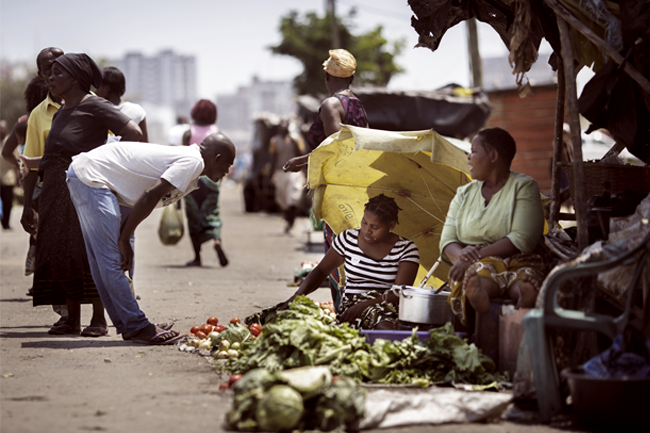A group of bike-riding researchers found there are more informal businesses in South African townships than the government has documented.
Armed with clipboards and GPS, the team travelled through eight of the country’s informal settlements and counted 9 500 informal businesses in total, according to an AFKInsider report.
Currently, government estimates place the contribution of the informal economy to the GDP at 5%. But founding director of the Sustainable Livelihoods Foundation Leif Petersen believes the figure exceeds 10%. This is why in a township community in Belhar, Western Cape province, the researchers counted 880 businesses, whereas the government only recognises 125.
The majority of these businesses (roughly 75%) include shebeens (informal liquor stores), spaza shops (informal convenience stores), child care services, hair salons, traditional healers, street vendors and micro manufacturers.
Petersen says there is little support for them, and most are excluded from the formal economy because of unrealistic, costly barriers to entry such as zoning laws.


